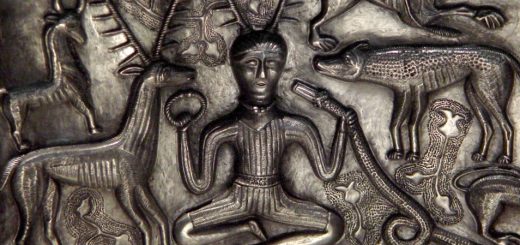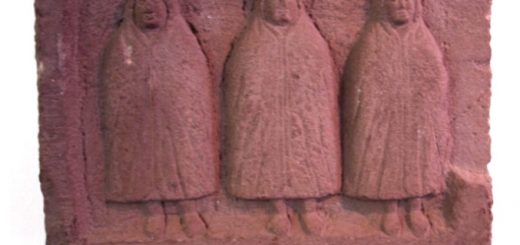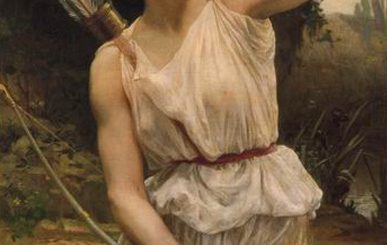Dagda, Dahgdha, The Father God
The father god of Irish mythology, his name means ‘The Good’ he is master of all arts and knowledge, and can be seen as one of the most powerful gods in the Irish Celtic pantheon.
His symbols seem to have been the cauldron (inspiration and wisdom), and the club (probably primal power). His cauldron also has the power to restore life, and was always full, providing endless nourishment for his peoples. The cauldron appears much in Celtic mythology and becomes amalgamated into traditions of the grail in the later Arthurian Romances.
In mythology he is the chief of the Tuatha de Dannan (The people of the goddess Dannan), and was a key figure in the overcoming of the Formorians, the misshapen race who inhabited Ireland before the Tuatha became dominant.
Later, according to the Irish myths, the Tuatha de Dannan become the fairy races under the hollow hills, when Ireland is invaded by the Milesians, so the Dagda becomes a fairy ruler.
The Dagda is also associated with the bardic tradition, and has a magical harp in his possession, which flies into the hands of its true owner when called. The Dagda had sexual intercourse with Morrigan while she straddled the river Unius, she gave him a plan for victory against the Formorians in exchange for his lovemaking.
His prowess as a lover appears many times in the Irish tales, which may link him to fertility; in any event he is the progenitor of many of the Irish pantheon.




Recent Comments